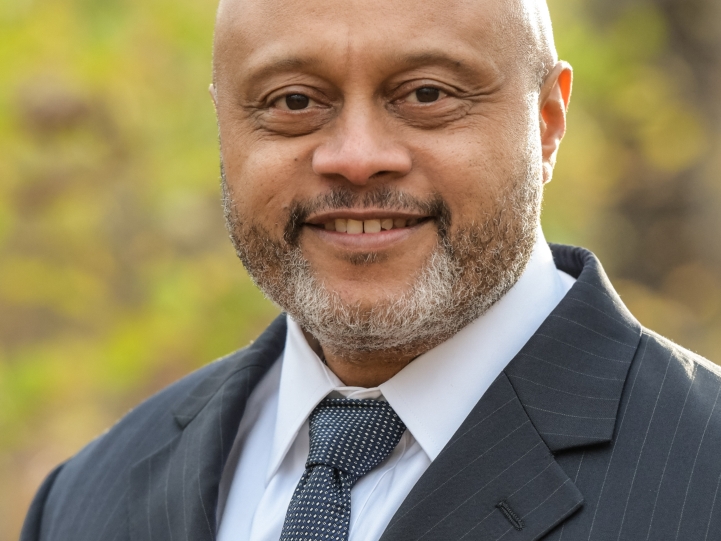
The New Model for Interviews: Conducting Searches in an Online Environment
Career and Workforce Development Supporting the Profession AVP or "Number Two" Senior Level VP for Student Affairs
November 18, 2021
Pre-pandemic I would not have fathomed participating in a job search without ever stepping foot on campus. But last fall, that is exactly where I found myself. The search process as I thought I knew it, had suddenly shifted to one where I looked into the camera of my computer from the beginning of the process right up to my acceptance of the offer.
Not surprisingly, this new online interview model has and continues to take hold in higher education as we continue to navigate the fluid impact of COVID-19. As I reflect on my own experience, I would like to suggest how we might take what we learned and changed about our search process during the pandemic and continue these practices moving forward.
Rethink the purpose of the on-campus visit.
Being able to engage in real-time creates opportunities in the online environment to successfully conduct searches using technology. As such, as we start to regain opportunities like the on-campus visit, I want us to rethink the purpose of it.
Instead of having a campus and community tour be couched in a tight, fifteen to twenty- minute window, I recommend the following: (1) Allow candidates to get an in-depth tour of the campus using more than one student guide. I recently had a conversation with a friend and colleague who recently accepted a presidency about her search process. She talked about how she valued being able to hear students’ experiences during a campus tour. (2) If activities or events are occurring, invite candidates to become spectators in the audience. (3) Explore surrounding community landmarks, centers, and neighborhoods. In the end, give candidates a first-hand view of whether they can see themselves living and working at the institution and with the surrounding communities.
Rethink how to engage (and prepare) the candidate in an online environment.
Viewing the process through the lens of a candidate is key. For example: (1) Prepare the candidate ahead of time. (2) Assign a point of contact for each session. (3) Check Internet access and connections before the interview day. (4) Provide a checklist for the candidate on how to prepare their space for optimal on-screen interaction. (5) Allow for longer breaks in between sessions.
Rethink how to engage the campus community in an online environment.
The layout of the schedule should include multiple opportunities for members of the community to connect with the candidate. As we rethink how to engage the campus community, I offer the following: (1) Assigning a moderator is a good idea because campus community members can then send their questions anonymously. This may seem like a minor point, however, this could open the possibility for more people to ask questions they might not ask during a face-to-face forum. Too often, live forums either are silent or dominated by one or two individuals. (2) Make sure anyone who wants to be present on screen avoids distractions like looking at their cell phones or focusing on other things. In other words, we want the candidate to feel like we are interested and engaged as much as they are with us. (3) If a PowerPoint presentation is being given, make it available early. (4) Allow time for unscripted questions at the end.
Rethink preparation for the search committee.
It is important to work with the search committee to help prepare them for the online environment as well. I recommend providing a checklist for how they can create an online presence. Things like (1) Projecting their voices when a question is asked, repeating the question, or asking the candidate if they heard or understood what is being asked. This could also mean making sure the volume is good or a microphone is used. (2) Being attentive to the candidate. Have a clear understanding of the questions being asked. (3) Avoiding distractions like cell phones or other items in the room.
I also think each search should assign a logistics and contact person who can be reached by phone throughout the process including communicating with the candidates during the pre-preparation phase. Traditionally, we have relied on search firms to “prep” the candidate; however, what I’m suggesting is we have a person on the search committee be a point of contact for questions about the process.
Rethink technology preparation.
Technology has operated as a bedrock during COVID; however, as we know, it can still present unexpected challenges. I propose the following as we rethink technology preparation: (1) Have an IT person present during the interview. This person should be prepared to work with the search committee and the candidate. (2) Have the IT person meet with the candidate in advance to make sure that the technology is working and to answer the candidate's questions. (3) Provide the candidate with helpful tips on how to use the technology. (4) Work with the search committee to do a practice run-through with the equipment and the volume in the room. (5) Always have a backup plan for when the technology fails.
Final Thoughts…
The virtual environment can continue to work well for the search process. If anything, COVID-19 has taught us how to adapt, pivot, and embrace and enhance the element of change in order to be equally or even more successful than we were before, which includes framing a new online model for the search process.
About the Author
Dr. Calvin Phillips serves as the vice president for student affairs and dean of students at the University of Minnesota. Phillips currently serves as a member of the NASPA James E. Scott Academy Board.